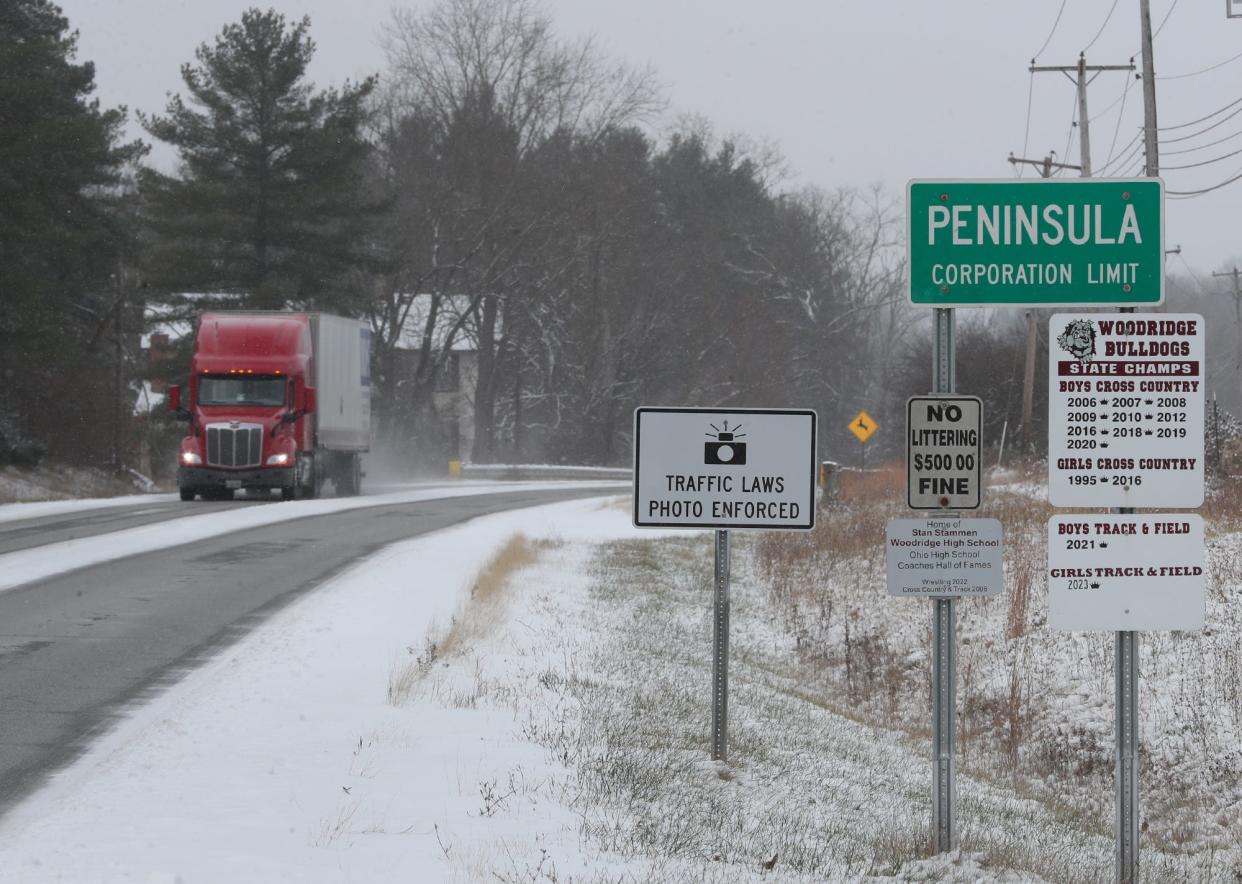Peninsula has cash to construct sewers at last, and ripple effects could lower Akron costs

Peninsula is finally on track to develop a long-sought sanitary sewer system with a financial boost from Summit County.
The village's recent acceptance into the Summit County Metropolitan Sewer District also could improve Akron's chance of striking a deal with federal officials to lower the city's cost to comply with a consent decree that has already required taxpayers to foot the bill for more than $1 billion in sewer overhaul projects.
The county has designated $7.5 million from its American Rescue Plan Act funds to help build a wastewater treatment facility in Peninsula. The plant would keep septic tank runoff from polluting the Cuyahoga River. Akron officials have said the project — along with other proposed actions — will eliminate the need for a pricy new wastewater treatment facility that is currently part of the federal mandate.
While the treatment plant will fill a major infrastructure gap in the village of about 536 people, Peninsula also continues to pursue a plan to pipe drinking water into the community — and officials are hoping to secure funding for this in time to install waterlines at the same time the sewer work is being performed.
Peninsula confronted with river pollution issues tied to septic systems
In 2018 and 2019, Summit County Public Health and the Ohio Environmental Protection Agency identified elevated levels of E. coli in samples taken from the Cuyahoga River in Peninsula. The agencies began discussions in 2020 with the village's newly established wastewater committee, and the Ohio EPA recommended a centralized sewer system as way to put Peninsula in compliance with the Clean Water Act.
That led to talks with Summit County and a proposal to use ARPA funds to pay for the project, said Michael Vinay, the county's director of sanitary sewer services.
"The village and the county had further discussions, came to an agreement and Peninsula leaders agreed to apply to join the sewer district last December," he said. The process included collecting feedback from residents.
On Jan. 29, Summit County Council accepted Peninsula into the Summit County Metropolitan Sewer District, ensuring the village will build a "centralized sanitary sewer collection system" that eliminates septic issues and reduces the threat of elevated E. coli in the Cuyahoga, Vinay said.
The county has issued a request for proposals to design the project; those forms are due Feb. 20.
"Once the design is complete, we will go out for public bid for the construction of the project — and we are hoping to do that by the end of the year," Vinay said. "Once the construction firm has an acceptable bid, we will go to County Council to approve that construction contact to begin work next year in 2025 and be done sometime in 2026."
Akron awaits next decision on its own sewer overhaul
County and Akron city officials have emphasized the Peninsula sewer project's potential to boost Akron's case for amending its consent decree, but the two are not inextricably tied. Vinay said the village's plan will move forward regardless of how Akron's bid turns out.
Akron officials are awaiting a response on a proposed fourth amendment to the consent decree, asking the federal EPA to drop its requirement for a new $209 million water treatment facility in response to measures to remove old septic systems throughout the city and in nearby communities.
"We are hopeful that we might get that decision within the next month," said Stephanie Marsh, the city's communications director.
Akron was ordered in 2009 to overhaul its water and sewage system after the U.S. EPA determined untreated wastewater and sewage was contaminating the Cuyahoga River, the Little Cuyahoga River and the Ohio Canal. Akron accepted the consent decree in 2014 and has completed 24 out of the 26 required projects.
The next phase of the project is the construction of the Northside Interceptor Tunnel, a 16.5-foot diameter, mile-long tunnel that will prevent the sewer system from overflowing from heavy rainfall. The U.S. EPA originally wanted the tunnel to be 24 feet in diameter, but city officials were able to push back, saving taxpayers millions of dollars.
The new tunnel will begin construction later this year.
Additionally, a combined sewer area known as Rack 34 will get new storm sewers while current combined sewers will be reused as separate sanitary sewers. The Rack 34 combined sewer project as well as the adjusted Northside Interceptor Tunnel diameter were part of Akron's third amendment to the consent decree.
Anthony Thompson can be reached at ajthompson@gannett.com, or on Twitter @athompsonABJ
This article originally appeared on Akron Beacon Journal: Peninsula joins Summit sewer district, gets $7.5M for treatment plant

